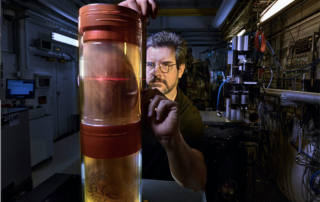First patient in UK gets ‘vaccine’ for cancer that should help immune system ward off cancer permanently
Source: City A.M. Date: February 14th, 2022 Author: Michiel Williams A Merseyside man has become the first in the UK to receive a ‘vaccine’ that is hoped will stop his recurring head and neck cancer from returning, in a clinical research trial which may help bring further ground-breaking treatments for the disease. The clinical research team at The Clatterbridge Cancer Centre has given patient Graham Booth an injection of a therapy tailor-made to his personal DNA and designed to help his own immune system ward off cancer permanently. Graham first had head and neck cancer in 2011 and it then returned four times, each time meaning he needed grueling treatment, including facial surgery, reconstruction and radiotherapy. He is now hoping this new treatment – part of the Transgene clinical research study – will mean it does not come back. Dad-of-five Graham, 54, will have a year-long course of immunotherapy injections in a bid to keep him cancer-free, part of a research project designed to reduce deaths and recurrence in head and neck cancers, including of the throat, neck, mouth and tongue. Graham, of West Kirkby, said he was not worried about being the first person in the UK to receive this pioneering treatment and that it “opened new doorways” which gave him hope that the cancer would not come back. Graham said: “When I had my first cancer treatment in 2011, I was under the impression that the cancer would not return. My biggest fear was realized in 2016 when [...]








